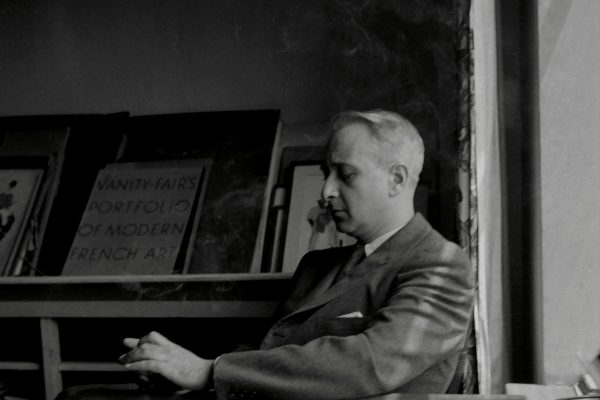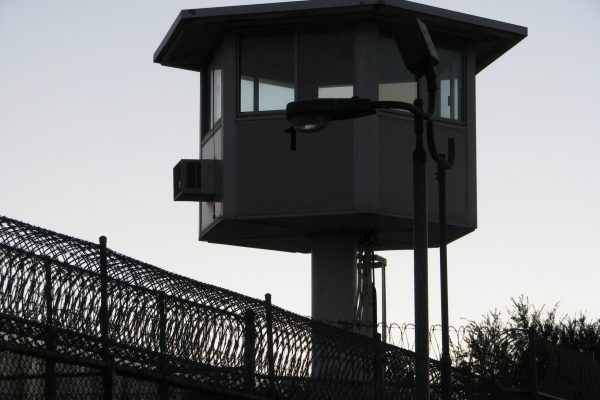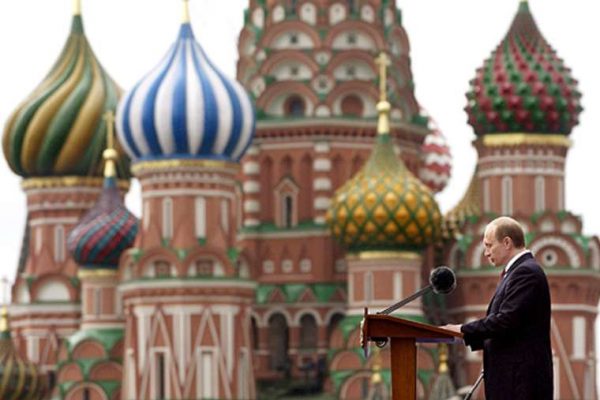Free Speech?
To the Editors:
In “The Patriot Act on Campus” (BR summer 2003), Columbia’s Provost Jonathan R. Cole warns us, quite rightly, about government interference and potential censorship now perpetrated in the research university under the cover of the Patriot Act. Cole’s account of the new intrusion of ideology into the federal support for the sciences is especially chilling. But he is on less sure ground in his discussion of free speech at Columbia and elsewhere. He refers, for example, to the “public outcry” that resulted when it was learned that the Oxford don and poet Tom Paulin, this year a visiting professor at Columbia, “had previously written poems and made some speeches that took a strong position against Israeli settlements in the West Bank.” “Columbia evidently “received hundreds of letters and e-mails calling for his immediate dismissal”—a situation Cole deplores as part of the larger misunderstanding of the role of the university in society that is the subject of his essay. What, after all, do a professor’s “political opinions” have to do with his role in what should be a “disinterested” and “objective” university community?
In Paulin’s case, this argument strikes me as more than a little disingenuous. According to the Guardian (13 April 2002), what the poet actually said, in an interview with the Egyptian newspaper Al-Ahram Weekly, was that the Jewish settlers in Israel “should be shot dead.” Calling the settlers “Nazis and racists,” he declared, “I feel nothing but hatred for them.” Surely this is more than a “strong position” against the settlements—a position many Jewish academics like myself share. I wonder what the Columbia administration would have said if a visiting poet-professor, say, from Eastern Europe, were quoted in the New York Times as having said he had nothing but hatred for Palestinians, who were all terrorists anyway, and that indeed, he would like to see these noxious Islamists “shot dead”? Would the Columbia community defend this professor’s right to free speech? Or can both statements be construed as hate speech and as the incitement to violence?
But there is a further irony. Paulin later claimed that his remarks were taken out of context, that he didn’t mean the words “shot dead” literally but was merely expressing his rage at Israeli actions. Perhaps the same holds true for those who, outraged by particular statements like Paulin’s, write e-mail and make phone calls demanding Professor X’s or Y’s “dismissal.” I would guess most of these people, who are, after all, themselves university graduates and often recent alumni, know very well nothing is going to happen and are just letting off steam. For of course the fact is that there was never the slightest question of Paulin’s dismissal from his visiting post. Nor, despite the letter signed by 104 Republican congressmen, was there ever a question of Nicholas de Genova’s dismissal from his tenure-track position even though, in a university teach-in on the Iraqi war, he called for “a million Mogadishus.”
In my experience, the only professors in our still-Puritan nation, who have ever been dismissed or, as the euphemism would have it, forced to take “early retirement,” have been those accused of sexual misconduct. Some of these cases are ones faculty members should indeed protest and protest vigorously. But I don’ t know a single professor fired, urged to retire, or even reprimanded for making the most violent verbal attacks possible on the U.S. government, Israeli “fascism,” and so on. True, certain alumni and donors will be offended enough to withhold donations or cancel bequests. But isn’t this precisely the exercise of freedom and “open communication” Provost Cole is so eager to preserve?
Marjorie Perloff
Sadie D. Patek Professor Emerita of Humanities
Stanford University
To the Editors:
Although I agree with most of Provost Cole’s defense of academic freedom, there are some important facts concerning some of the examples from his experience at Columbia University that should be mentioned.
The poet Tom Paulin is not just a defender of Palestinian rights and critic of Israeli settlements in the West Bank. He advocated killing the settlers. Many Israeli and Israel supporters also advocate abandoning the settlements. But supporting terror and murder is another matter altogether. Should we condone and encourage the latter? Someone who engages in hate crimes does not merit academic freedom. Would Columbia University invite an anti-Afromerican racist to preach his brand of hate at the University?
Another recent incident at Columbia, unmentioned I believe by Provost Cole, concerned the cancellation of a class by a professor who wanted to participate in a pro-Palestinian rally. Not only did he leave his class but he urged his students to attend the rally as well. Now, in the first place, this professor short-changed his students, who pay a lot of money to attend classes at the university. Secondly, what about the students who prefer not to attend? Will they be put down in this professor’s “black book”? Will they be penalized in some way if they refuse to attend the rally? To cancel a class for political purposes is an abuse of academic freedom.
Provost Cole attempts to draw a parallel between the sponsoring of a Palestinian film festival and the retirement celebration for a professor of Jewish history, suggesting some kind of “evenhandedness” and impartiality. But I am certain that the professor of Jewish history has not engaged in terrorist activities nor supported them. The parallel fails.
Finally, of equal,perhaps of greater, concern is the current boycott of Israeli academics and students. Just recently at Oxford University an Israeli graduate student was told by the relevant professor not to apply for a fellowship just because he is Israeli. Fortunately, the case is under investigation and it is to hoped that appropriate action will be taken against the professor. What we seem to have here is a kind of McCarthyism directed against Israelis and their supporters, only practiced now by those on the radical left part of the political turf. In his essay Provost Cole mentioned the German purge of Jewish scientists and academics. Is this happening again?
Vigilance must indeed be exerted to defend academic freedom. Equal care, however, must be exercised to see that this freedom is not abused or practiced in a prejudicial and discriminatory manner.
Seymour Feldman
Professor of Philosophy, Emeritus
Rutgers University
Jonathan Cole responds
I appreciate the concerns with issues of academic freedom expressed by Professors Perloff and Feldman. But I think they miss the central issue, which is about the nature of the university and its tolerance and encouragement of a variety of points of view that may run counter to current fashion and received wisdom, and may offend people. Universities, in their unique way, should be radical institutions—radical in their expectation that ideas that call regnant views into question will be reflected on and debated seriously. It is precisely then that we can expect to see the emergence of new ways of viewing the world. And it is equally important that these radically different views be met, in turn, with the proper level of skepticism.
University leaders should not act as “official” arbiters of what are acceptable ideas and what content “crosses the line” and deserves “sanctioning” for ”going too far.” The distinguished philosopher Sidney Morgenbesser once asked an introductory philosophy class the following final exam question: “Some say Marx and Freud went too far. How far would you go?” With this in mind, do the thought experiment. Suppose that a current Israeli government minister took “a leave of absence” to accept a visiting professorship at Columbia. In his opening lecture he says that Yasir Arafat should be “removed” and possibly “assassinated.” Would this be totally distinguishable from Paulin’s remarks? Many at Columbia and elsewhere would find this minister’s position offensive and might consider it “hate speech” or “incitement.” They might insist that we send him back to Israel. But I would no more support that request than I would the demand that Tom Paulin be sent back to Oxford. I would expect those who are offended to offer reasoned critiques of the offending remarks—to respond, as Justice Brandeis urged, with “more speech.” In free speech doctrine this issue is now settled. Why not at our great universities?







